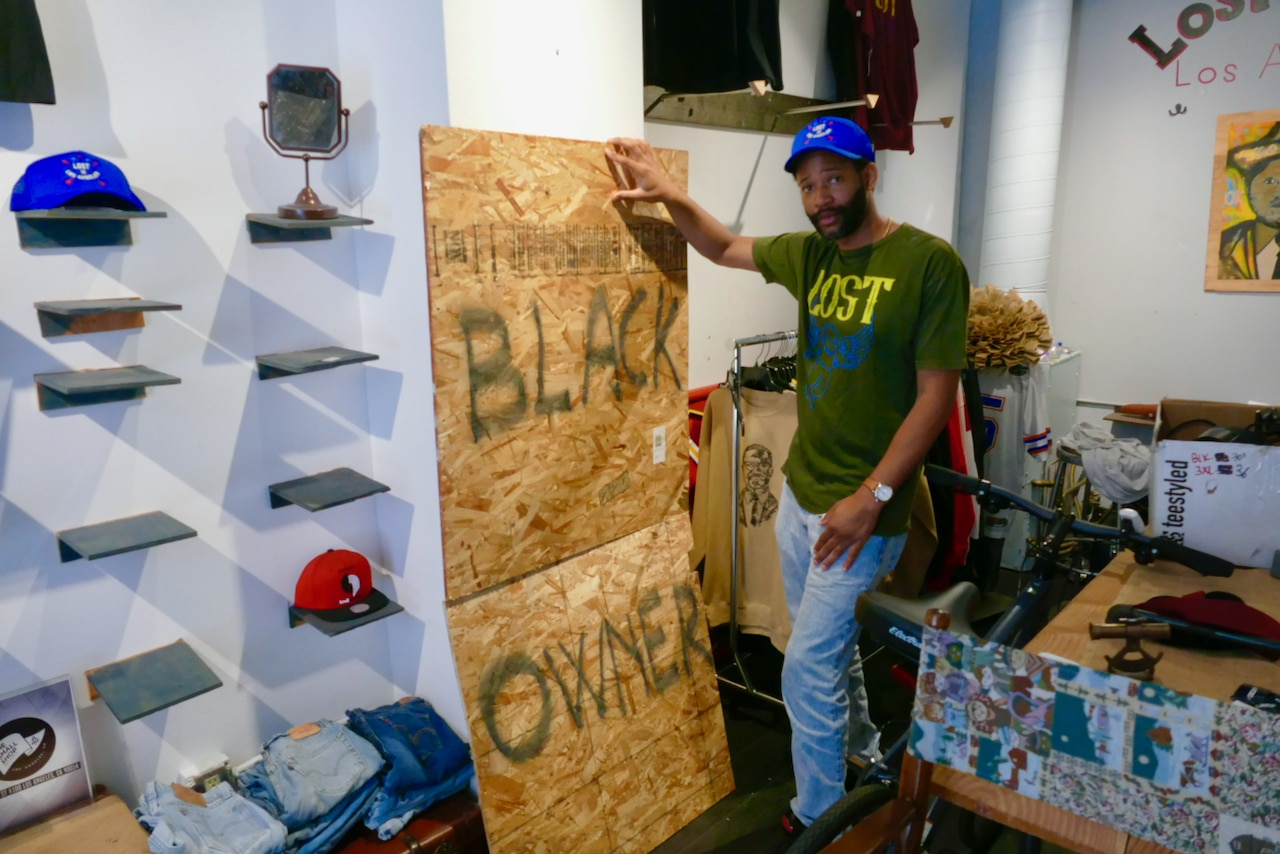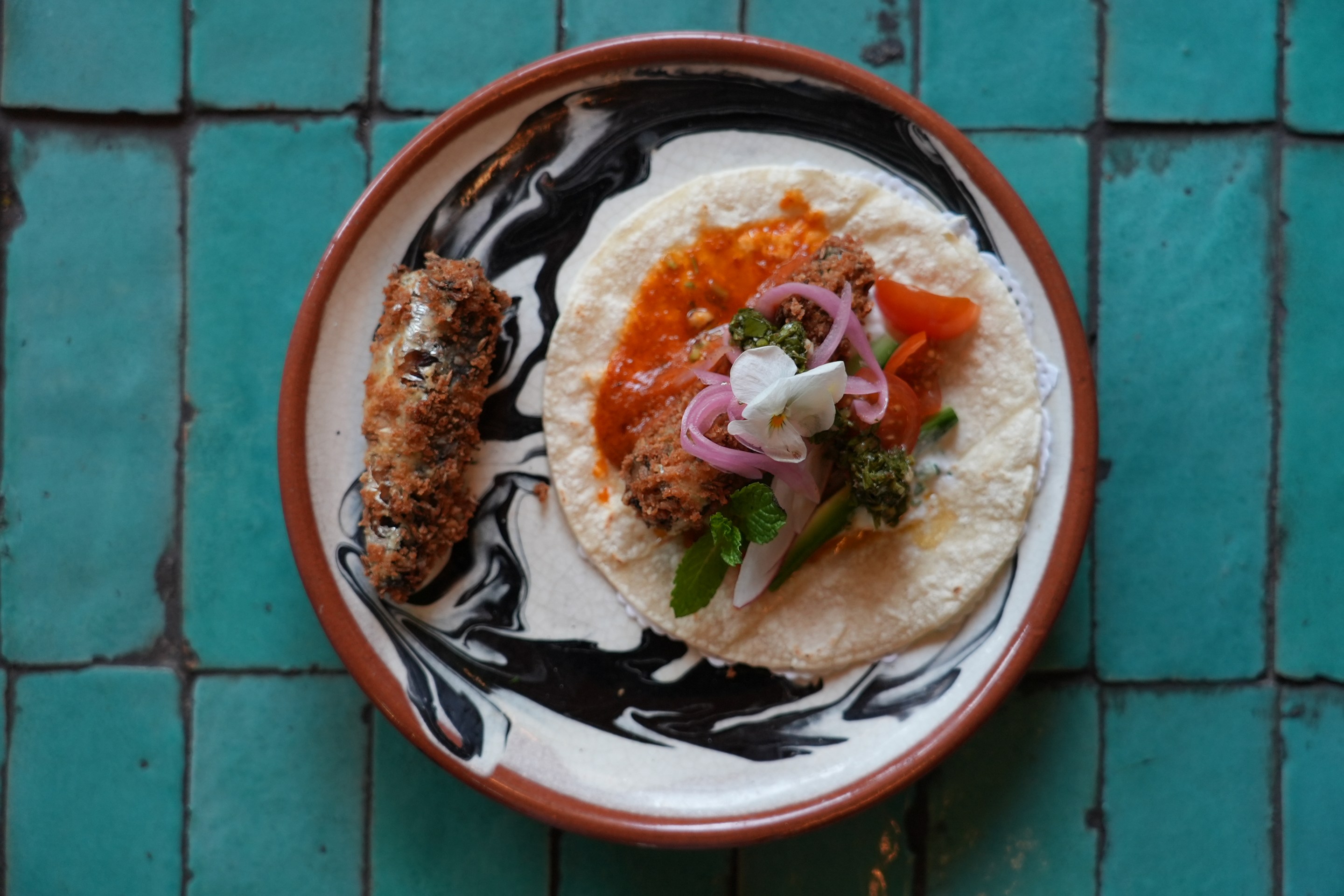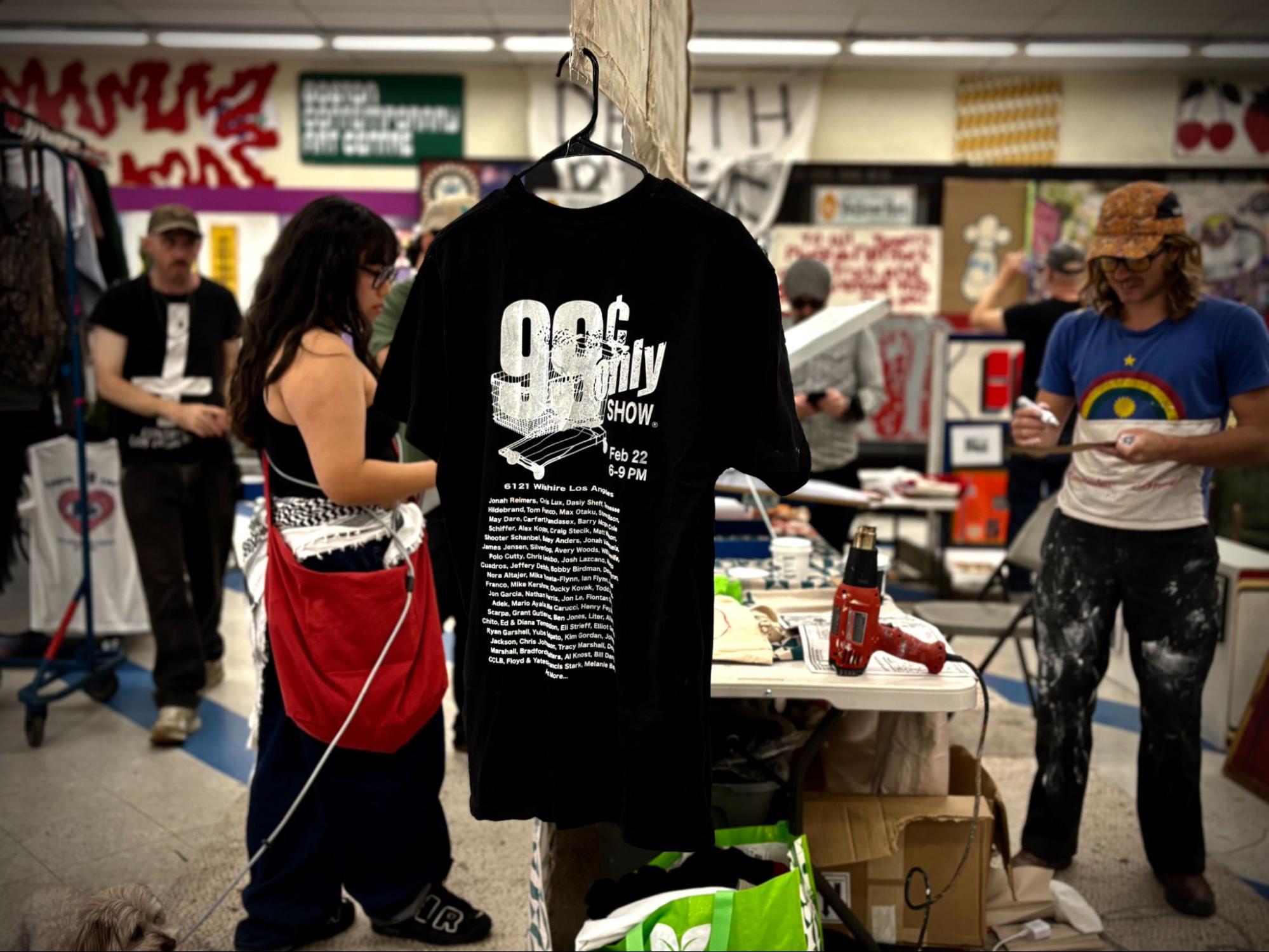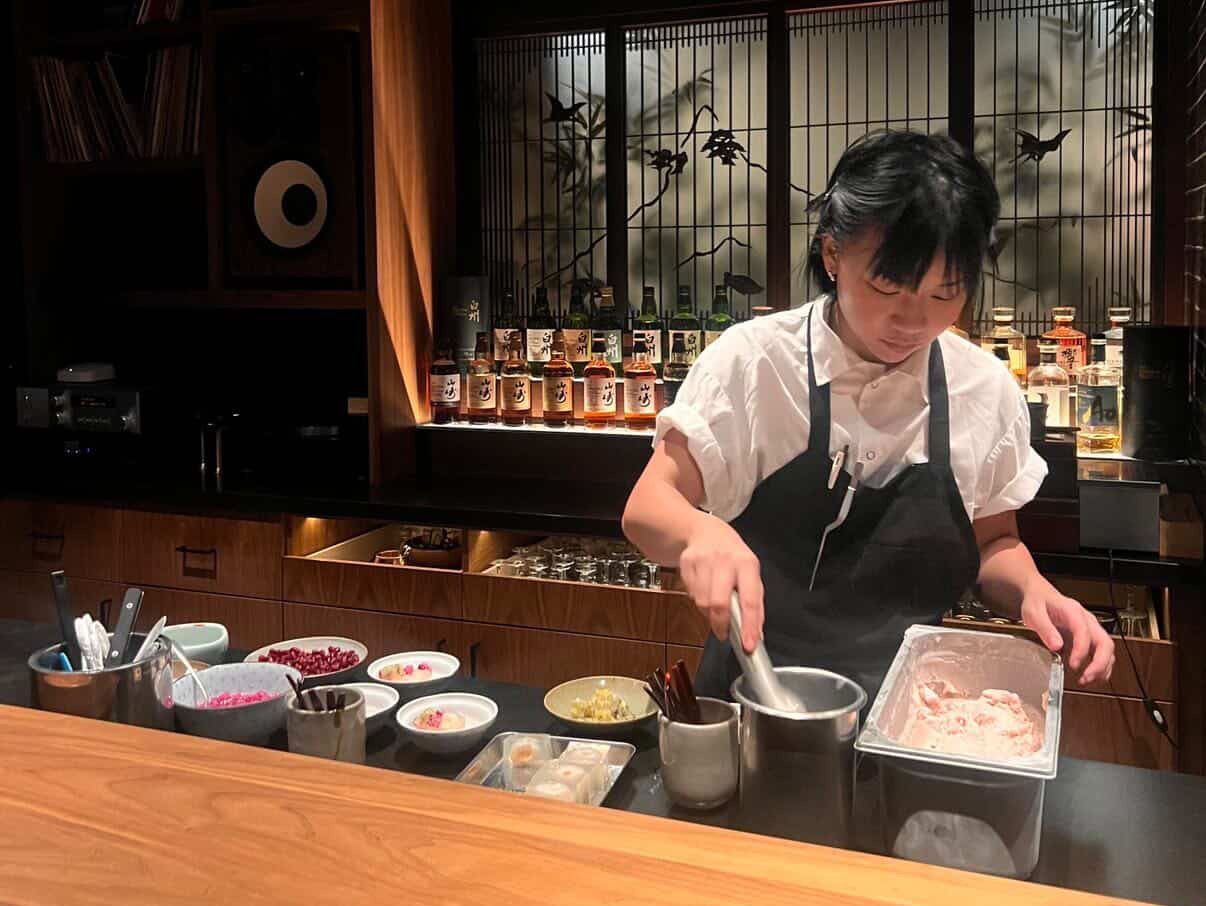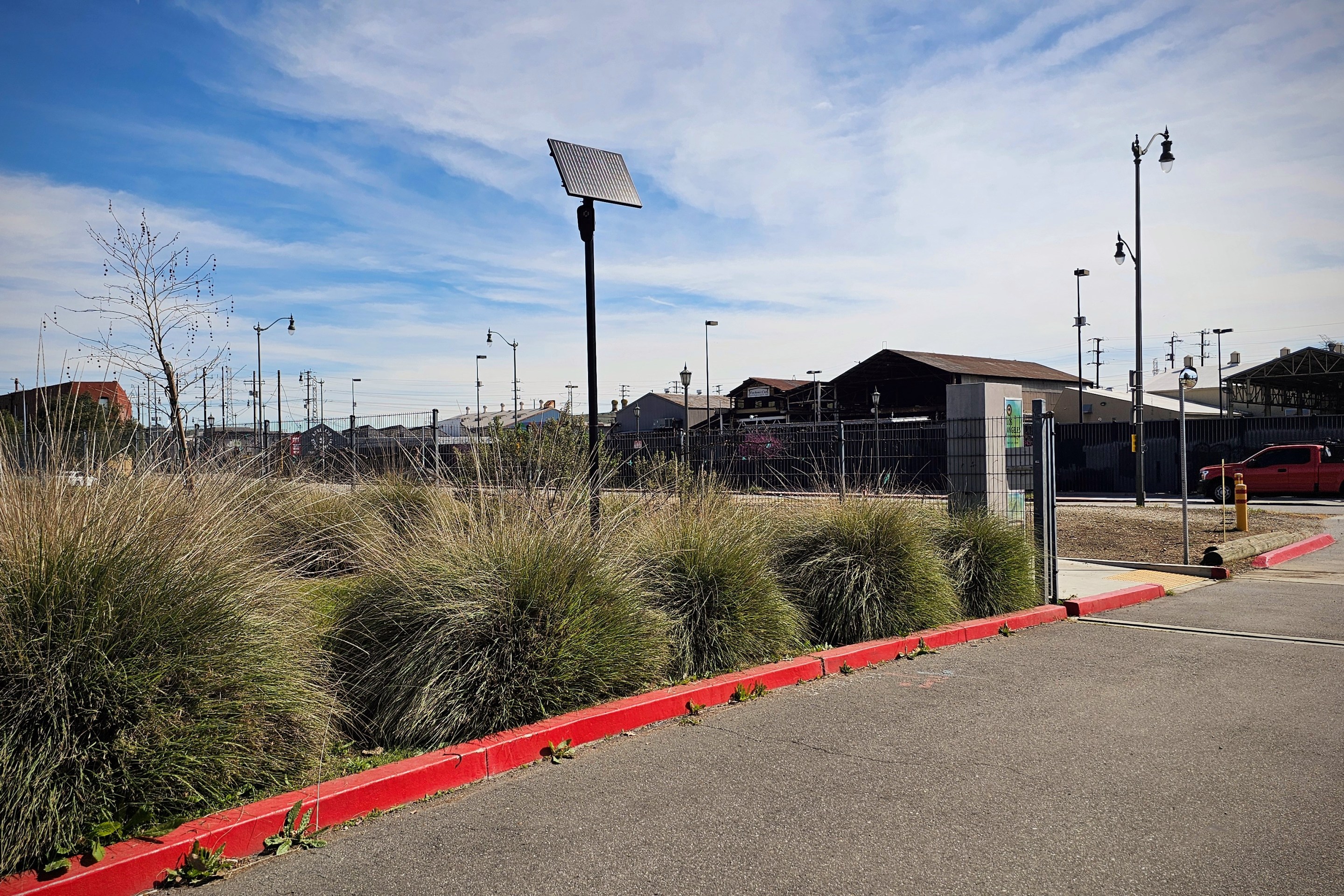[dropcap size=big]J[/dropcap]oel Stallworth talks like he’s got nowhere to be, ironic considering he’s a former track star in the midst of a blitzkrieg of new business. Sure, he’s at home by this point, enjoying family time and decompressing after a day filled with non-stop emails, orders, and social media entreaties. But his calm demeanor isn’t just about presumed-exhaustion; he really just doesn’t sweat. Not even when his shop gets smashed to shit.
“My friends were calling me and saying, ‘Hey, you gotta protect the shop.’ I was like, ahhh. The shop is really not my focus. I’m more focused on people’s lives,’ he said.
“I don’t want anybody looting my shop, but the reality is lives are more important than shops.”
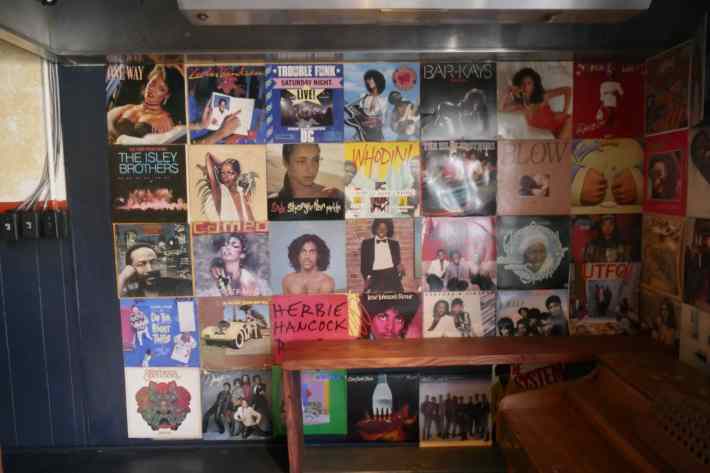
While police brutality gets increasing coverage—taking a sickening turn in recent weeks with seemingly non-stop footage of vicious beatings of protestors by police—people the world over have responded to calls of solidarity by opening their wallets. This trend is leading to what some Black-owned shop owners say are record-breaking sales for their stores, a modest silver lining in a sea of tragic news.
Stallworth is the longtime owner and founder of The Small Shop in DTLA, a boutique clothing store that’s become a staple on 6th Street. It’s loosely-flanked by the recently-reopened Starbucks on Spring Street and Cole’s French Dip on the other side of Main. The shop is on a relatively luxe-stretch of downtown, known pre-COVID-19 for its bustling bars and nightclubs. It’s also 1.5 blocks from Skid Row, a humanitarian disaster and a stark rendering of the brutality of racism.
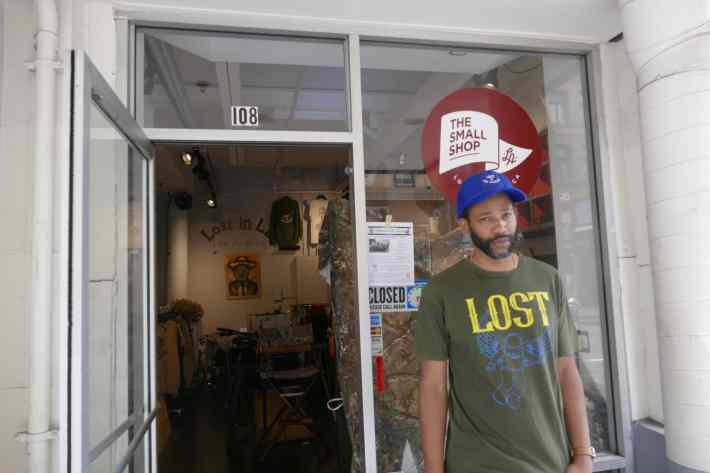
The convergence of extreme poverty and wealth puts a spotlight on shops like his. Do you condemn looters, who are accused by some to have less interest in justice for Black people and more about getting free stuff?
For Stallworth, it’s easy. “If my shop has to be an example to help save lives, I’m OK with it.” Though he acknowledges there’s a long way to go, Stallworth is proud of the impact protestors have had. “I’m happy. Without these riots, we know for a fact police would be out, hanging out, doing what they do,” he said.
He’s also enjoying the most business his shop has ever had. He’s gotten a deluge of support from celebrities and well-wishers, wealthy clientele, and those looking to show solidarity in whatever way they can.
“I’m emotional about the response of the community,” he said. “If you look at my Instagram, you’ll see that people were telling me ‘you need to put a GoFundMe up. Put one up!’ And I’m just like, I’m not even worthy.”
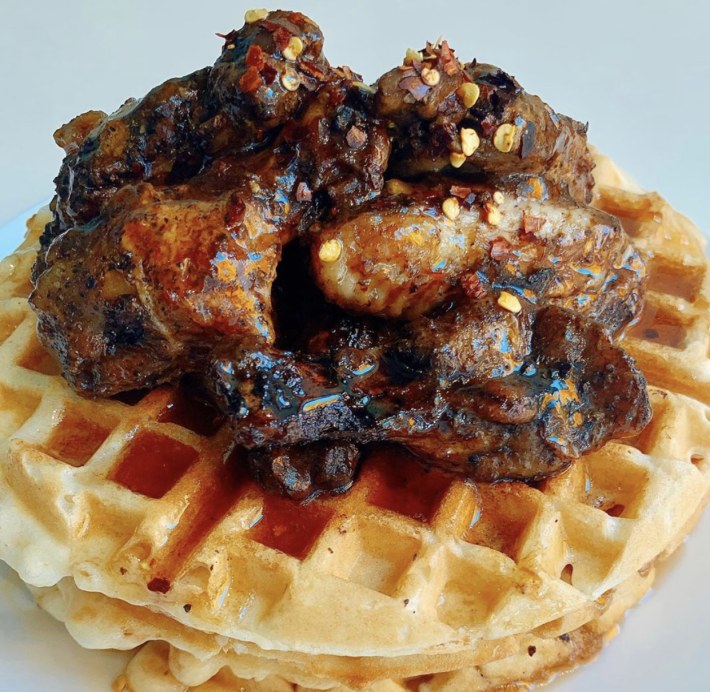
He’s not alone. Aja Dawson’s abeautifullife Jamaican Cafe has also seen a surge of business since the protests started, the restaurant’s modest storefront donning a Black-owned business sign and a boarded-up door courtesy of her landlord.
‘We have a waiting list for oxtail. It’s cute. It’s like getting into a club or something,’ she said.
This bubble could burst, though. She thinks the richness of Black food culture should be celebrated, that Jamaican food should be as widely-consumed here as Italian food, Ethiopian food as pervasive as Indian food. “Every Black business owner that I know should have at least six restaurants right now. They don’t.”
“Ain’t nobody coming to Skid Row to play crazy, man. They’re going up a few blocks. They don’t really wanna go to where it’s real at and do all the ruckus...”
As the protests hit a fever pitch Downtown, she stuck around late to watch over the restaurant. When I asked her about the Black-owned sign in her window, she was clear: “Everyone who comes and patronizes me knows that it’s black-owned. Everyone in this neighborhood knows that my place is Black-owned.”
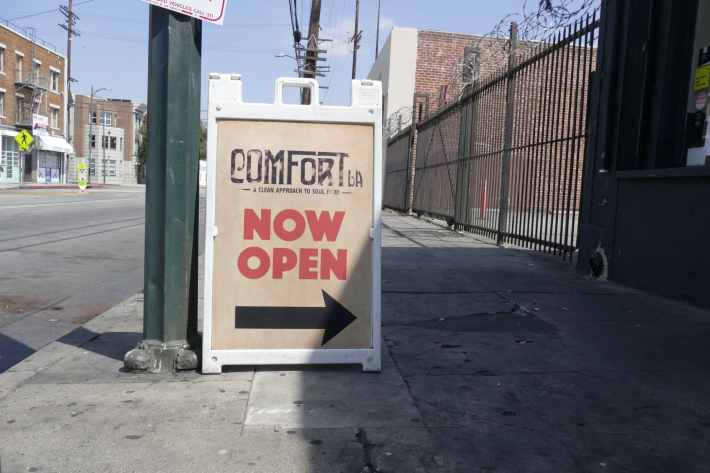
According to a recent Washington Post article, the number of working Black business owners dropped 41 percent during the pandemic, a double-whammy for a community already battling COVID-19 at outsized rates. The protests in recent weeks have brought a conflicted sense of relief to some of these owners.
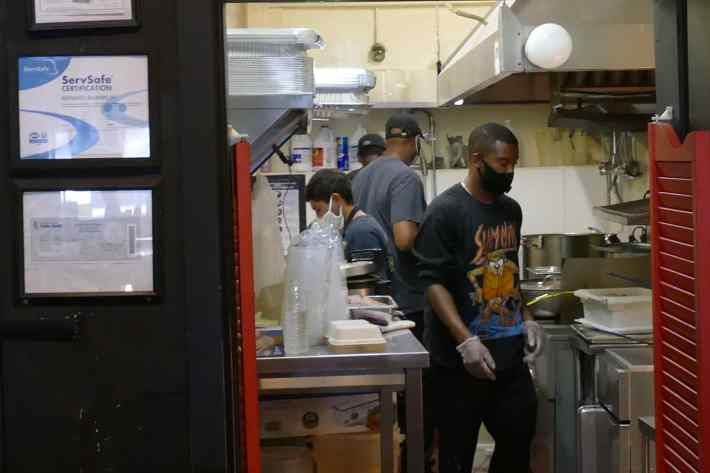
“Clean” soul-food connoisseurs Comfort LA have a Black-owned sign in their Inglewood storefront window, but not at their Downtown location. “Ain’t nobody coming to Skid Row to play crazy, man. They’re going up a few blocks. They don’t really wanna go to where it’s real at and do all the ruckus,” says Jeremy McBryde, the restaurant’s extroverted co-founder.
Calling their downtown location at most times is an exercise in either patience or futility - the lines stay busy. “There’s been a renewed consciousness in buying Black. It’s unfortunate that it took an incident like that to trigger it, but we’re definitely back on folks’ radar,” he said.
“I got some news for people: This generation is breaking chains that couldn’t be broken a hundred years ago, two hundred years ago, four hundred years ago. We’re doing it, and it’s almost there.”
Along with his co-founder Mark Walker, they hope to use this momentum to expand their empire. McBryde talking about their future in terms one might hear from someone on a megaphone at one of L.A.’s still-rolling protests: “We don’t want no flash in the pan, no quick shit. If you’re gonna rock with us, rock with us ten toes down.”
I can hear early-morning helicopters as I type this. My gut says they’re either monitoring traffic, or they’re monitoring me, our nation’s fever-dream daily chipping away at my sense of security. It’s beyond-exciting to hear people are responding to bigotry with their dollars and their sense, but I hope this wave doesn’t trough or somehow tosses us all into the ocean.
But if you listen to Joel Stallworth talk, you might just be able to keep the faith: “I got some news for people: This generation is breaking chains that couldn’t be broken a hundred years ago, two hundred years ago, four hundred years ago. We’re doing it, and it’s almost there.”
